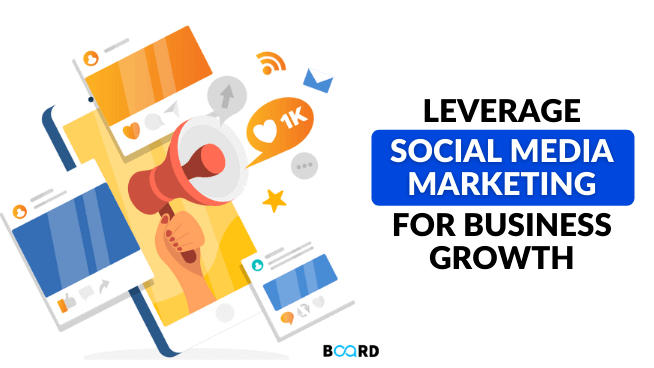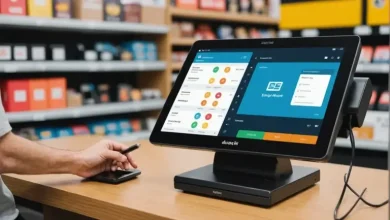How to Start and Grow a Successful Business Online

Starting an online business has never been more accessible or lucrative. With the rise of e-commerce platforms, digital marketing strategies, and remote work opportunities, more people are looking to build businesses online. But why is starting an online business such a smart move?
In today’s digital economy, consumers are increasingly shopping, researching, and communicating online. The barriers to entry are lower than traditional brick-and-mortar businesses, and the potential for global reach means you can scale faster than ever before. Whether you want to create a side hustle, build a full-time business, or launch a startup, understanding how to start and grow an online business is essential.
This article will provide a step-by-step guide to starting and scaling a successful online business, covering everything from choosing the right business model to optimizing for search engines and handling customer service.
Benefits of Starting a Business Online
Starting an online business offers several advantages over traditional business models:
1. Low Startup Costs
Unlike physical businesses that require renting space, buying inventory, and managing utilities, online businesses often have minimal costs. With platforms like Shopify, WooCommerce, and Squarespace, you can set up an online store for a small monthly fee.
2. Flexibility and Scalability
Online businesses offer unmatched flexibility. You can work from anywhere, set your hours, and adjust your operations based on demand. As your business grows, you can easily scale by increasing product lines or expanding into new markets.
3. Global Market Reach
With an online business, your customers aren’t limited to your local area. You can reach customers globally and take advantage of different time zones and market trends. This allows for continuous revenue generation.
4. Automation Opportunities
Online businesses can benefit from automation tools for marketing, customer service, and sales. Tools like email autoresponders, chatbots, and automated inventory management can save time and increase efficiency.
Types of Online Businesses
When it comes to starting an online business, you have several options to choose from:
1. E-Commerce Stores
Selling physical or digital products through platforms like Shopify, Amazon, or Etsy is one of the most common online business models.
2. Service-Based Businesses
Freelancers and consultants can offer services such as writing, graphic design, web development, and coaching online.
3. Affiliate Marketing
Affiliate marketers promote other businesses’ products and earn a commission for every sale made through their referral links.
4. Digital Products and Courses
Creating and selling eBooks, online courses, and digital templates can be highly profitable with low overhead costs.
5. Subscription-Based Models
Subscription boxes, memberships, and recurring services provide predictable, recurring revenue.
How to Choose the Right Online Business Model
Selecting the right business model depends on your skills, market demand, and financial goals:
1. Evaluate Your Skills and Interests
Choose a business model that aligns with your strengths and passions. If you enjoy writing, a blog or content-based business may be ideal.
2. Market Demand Analysis
Research your target audience to understand what products or services are in demand. Use tools like Google Trends, SEMrush, and social media to spot trends and gaps in the market.
3. Profitability and Competition
Assess the potential profitability of your business idea and analyze competitors to identify what’s working and where you can differentiate yourself.
Setting Up Your Online Business
Getting your online business off the ground requires strategic planning:
1. Creating a Business Plan
Outline your business goals, target audience, product/service offerings, and marketing strategy. A clear business plan helps you stay focused and attract investors.
2. Registering Your Business
Choose a legal structure (LLC, sole proprietorship, etc.) and register your business name. Ensure you comply with local and international business laws.
3. Setting Up Payment Processing and Banking
Integrate secure payment gateways like PayPal, Stripe, and Square. Open a business bank account to separate personal and business finances.
Building a Professional Website
A professional website is the foundation of any successful online business:
1. Choosing a Domain and Hosting
Select a domain that reflects your brand and choose a reliable hosting provider like Bluehost or SiteGround.
2. Designing a User-Friendly Website
Ensure your website is mobile-friendly, easy to navigate, and fast-loading.
- Use clear calls-to-action (CTA)
- Include a simple checkout process
- Optimize for search engines
3. Essential Website Features
Include essential elements like:
- Contact forms
- About Us page
- Product/service descriptions
- Customer reviews
Creating Quality Content for Your Business
Content is the backbone of any successful online business. High-quality content not only attracts visitors but also builds trust and converts them into loyal customers.
1. Importance of Content Marketing
Content marketing helps establish your brand authority and improve search engine rankings. Consistent, valuable content drives organic traffic and engages your audience. According to research, businesses that blog consistently receive 67% more leads than those that don’t.
2. Blogging and Articles
Creating a blog on your website is one of the most effective ways to generate traffic. Blog posts should be:
- Informative and helpful to your target audience
- Optimized with relevant keywords
- Written in a conversational, easy-to-read tone
- Updated regularly to stay relevant
3. Video and Social Media Content
Videos and social media posts are highly engaging and have a higher chance of going viral. Platforms like TikTok, Instagram, and YouTube allow you to reach a wider audience.
- Create tutorial videos or product demos
- Engage with followers through comments and messages
- Use hashtags and trends to increase visibility
Search Engine Optimization (SEO) for Online Businesses
SEO is critical for ensuring your business ranks well on search engines like Google and Bing. The higher you rank, the more organic traffic you’ll receive.
1. On-Page SEO Strategies
On-page SEO involves optimizing individual pages of your website:
- Title Tags and Meta Descriptions – Include targeted keywords naturally
- Headings (H1, H2, H3) – Structure your content with clear headings
- Internal Linking – Link to other relevant content on your site
- Image Optimization – Use alt text and compress images for faster loading
2. Off-Page SEO Strategies
Off-page SEO involves actions taken outside of your website to improve search rankings:
- Backlink Building – Earn high-quality backlinks from authoritative sites
- Social Media Sharing – Increase visibility and referral traffic
- Guest Blogging – Write for other reputable websites to gain exposure
3. Local SEO and Voice Search Optimization
If you have a local business element, local SEO is essential:
- Create a Google My Business profile
- Include location-based keywords
- Optimize for voice search by using conversational language
Leveraging Social Media for Business Growth

Social media platforms provide powerful tools for promoting your business and engaging with customers.
1. Choosing the Right Platforms
Focus on platforms where your target audience is active:
- Instagram and TikTok – Best for visual content and younger audiences
- Facebook – Great for community building and paid ads
- LinkedIn – Best for B2B and professional networking
2. Creating Engaging Content
Post a mix of promotional, informative, and entertaining content:
- Share behind-the-scenes updates
- Create polls and Q&A sessions
- Use user-generated content to build community
3. Running Paid Advertising Campaigns
Investing in social media ads can drive targeted traffic:
- Use Facebook and Instagram ads to target specific demographics
- Retarget visitors who abandoned their shopping carts
- Track ad performance and adjust strategies accordingly
Email Marketing and Lead Generation
Email marketing remains one of the most cost-effective ways to generate leads and build customer relationships.
1. Building an Email List
Encourage website visitors to sign up for your email list:
- Offer a free lead magnet (e.g., eBook, discount)
- Use pop-ups and signup forms
- Run social media contests to collect emails
2. Creating Effective Email Campaigns
Segment your email list to create personalized content:
- Welcome emails for new subscribers
- Promotional emails for product launches
- Educational emails to build trust
3. Automation and Segmentation Strategies
Use email marketing platforms like Mailchimp and ConvertKit to automate campaigns:
- Send abandoned cart reminders
- Follow up with inactive subscribers
- Provide tailored recommendations based on past behavior
Customer Service and Retention Strategies
Excellent customer service is crucial for retaining customers and encouraging repeat business.
1. Providing Excellent Customer Support
Ensure your customers can easily reach you:
- Offer live chat and chatbot support
- Provide detailed FAQs and self-help guides
- Respond to emails and messages promptly
2. Managing Reviews and Feedback
Encourage satisfied customers to leave positive reviews:
- Respond to negative reviews professionally
- Showcase positive testimonials on your website
- Use feedback to improve your products and services
3. Implementing Loyalty Programs
Loyalty programs help retain existing customers:
- Offer points for purchases that can be redeemed for discounts
- Provide exclusive access to new products or services
- Create referral programs to encourage word-of-mouth marketing
Analyzing and Improving Business Performance
Tracking and analyzing your business’s performance helps identify what’s working and where improvements are needed.
1. Using Google Analytics and Other Tools
Set up Google Analytics to track website traffic and user behavior:
- Monitor bounce rates, conversion rates, and traffic sources
- Identify high-performing pages and optimize underperforming ones
2. A/B Testing Strategies
Test different elements of your website and marketing campaigns:
- Try different headlines, CTAs, and images
- Analyze results and adjust based on what works best
3. Improving Conversion Rates
Use data to increase conversion rates:
- Simplify the checkout process
- Offer multiple payment options
- Provide clear product descriptions and high-quality images
Scaling Your Online Business
Once your business is stable, focus on scaling to maximize profits and reach.
1. Hiring and Outsourcing
Expand your team by hiring or outsourcing tasks:
- Hire virtual assistants for customer support
- Outsource content creation and marketing
- Focus on strategic decision-making
2. Expanding Product or Service Lines
Introduce new products or services based on customer feedback:
- Test market demand before full launch
- Create complementary products for cross-selling opportunities
3. Partnerships and Collaborations
Partner with other businesses and influencers to expand your reach:
- Co-host webinars or events
- Offer joint promotions
- Use influencer marketing to build credibility
Challenges of Running an Online Business
Every business faces challenges, and online businesses are no exception.
1. Competition and Market Saturation
High competition requires you to stand out:
- Focus on unique value propositions
- Develop a strong brand identity
2. Technical Issues and Cybersecurity
Technical issues can disrupt your business operations:
- Invest in secure hosting and SSL certificates
- Regularly update your website and plugins
3. Adapting to Market Changes
Market trends and algorithms change constantly:
- Stay updated with industry news
- Adjust strategies based on performance data
Conclusion
Starting and growing a successful online business requires careful planning, strategic execution, and continuous optimization. By choosing the right business model, creating quality content, and leveraging digital marketing strategies, you can build a profitable and sustainable business online.
Don’t be discouraged by challenges along the way—every successful entrepreneur faces them. Stay focused on your goals, remain adaptable to market changes, and keep improving your business strategies.
FAQs
1. What is the best platform for starting an online business?
The best platform depends on your business type. Shopify is ideal for e-commerce, WordPress for content-driven sites, and Wix for general business websites.
2. How long does it take to make a profit from an online business?
It depends on your business model and market strategy. Most online businesses start generating profits within 6 to 12 months.
3. Is it possible to run an online business without technical skills?
Yes. Many platforms offer user-friendly interfaces, and you can outsource technical work to freelancers.
4. How much money is needed to start an online business?
Startup costs vary, but you can start with as little as $100 for a domain, hosting, and basic website setup.
5. What are the biggest mistakes to avoid when starting an online business?
Avoid failing to research the market, underestimating competition, ignoring SEO, and neglecting customer service.




